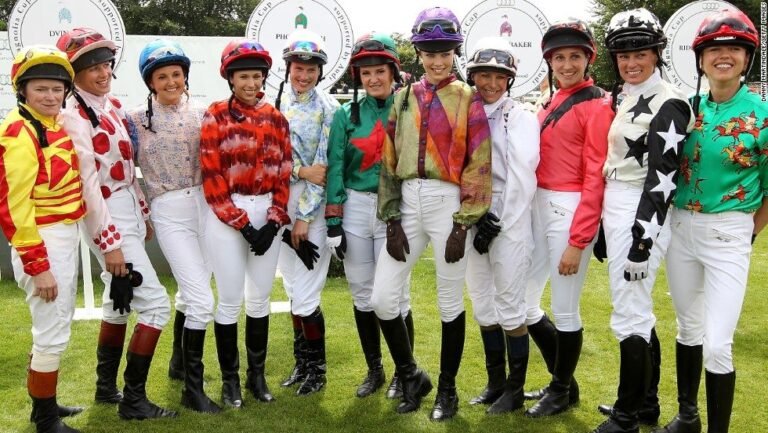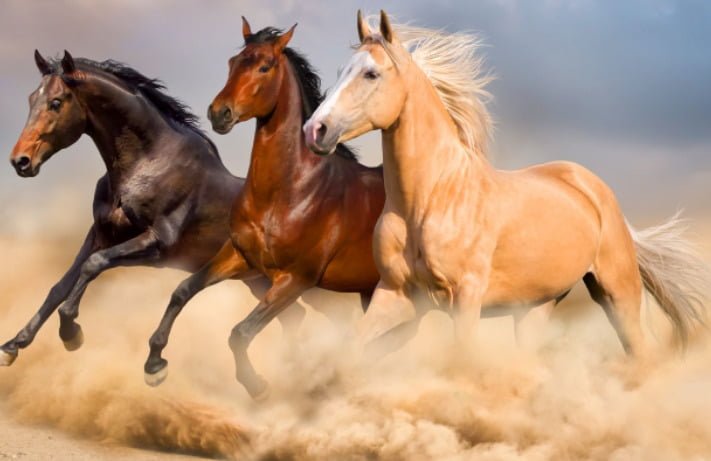Horse Veterinarian Importance

The horse veterinarian is the person who diagnoses and treats any injuries or illnesses to be falling on horses or other large animals. Veterinarians may also refer to meso-to-large-sized mammals such as cows, pigs, sheep, donkeys, and goats.

A Veterinarian of a horse can specialize in different fields, such as clinical practice, research, food safety and security, public health, etc. Also, a veterinarian may focus on a certain species of animals like equine veterinarian (horses) or bovine veterinarian (cows).
Being a veterinarian is an extremely versatile job in light of this very broad profession. The veterinarian is expected to possess various abilities varying from animal handling to biomedical knowledge.
A veterinarian must be an extremely organized person who can manage their time efficiently. Also, a veterinarian must have great communication skills. They are instructing owners on how to treat their pets at home and working with other veterinarians for greater care of a horse.
How to become an equine veterinarian?
To become an equine veterinarian, one must obtain a degree in veterinary medicine at an accredited 4-year college/university. After getting the bachelor’s degree (BVSc, BVM, or BVMS), students take national board exams to acquire their license to practice veterinary medicine.

They then enter into general practice for around three years; then, they can apply for a special training program. Special training programs may vary from working with zoo animals to pursuing a Ph.D. in equine science or becoming an equine veterinarian.
It is also possible to enter as a Veterinary technician from high school and work your way up through the field. One does not even need a degree or license to be a veterinary technician. However, becoming an equine veterinarian is not easy; it takes years of dedication and effort to become one.
Another way to become an equine veterinarian is by becoming a nurse (registered nurse). A registered nurse will be able to work in hospitals with animals, helping vets out on a daily basis. This can be considered as a training period to becoming a veterinarian.
A veterinary technician is more of a paramedic, going around and administering medications, stitching wounds etc. A Veterinary Technician does not have the right to prescribe or diagnose animals; however, they can work their way up by becoming a veterinarian assistant. They must obtain a degree in veterinary technology from an accredited college/university. They must pass a national board exam to acquire a license, and after that, they may apply for a special training program.
There are other jobs not directly related to becoming an equine veterinarian but focusing on animals instead and, for instance, becoming a Zoologist or Animal Care Specialist or becoming a research assistant in a university who works with horses/mammals, etc.
What does a sports horse veterinarian do?
A sports horse veterinarian is a sport Horse Veterinary. This includes professionals in the racing industry, sports medicine and sports surgery clinics, equine practice veterinarians, or competition veterinary services.

– Sports Horse Vet can specialize in different fields such as sports medicine and surgery clinics, race track work; equine practice; animal welfare agencies; food safety and security; pharmaceutical companies, academia, etc.
Sports horse vets must have extensive knowledge of horses, their anatomy, physiology, and sports injuries. A sports horse vet should be able to diagnose any problem accurately.
– Sports horse vet is required to work long hours depending on the nature of sports they specialize in (i.e., sports requiring nighttime engagements).
– Sports horse vets must be dedicated and willing to travel a lot. They need to be dedicated to sports horses as it is their primary concern. If a sports horse vet has no interest in sports or sports medicine, they should not pursue this profession.
The pool of sports horse vets is relatively small. There are not many sports medicine clinics. To become an equine sports vet, the following skills must be cultivated: communication skills, good rapport with sportspeople and horses; excellent hands-on skills; knowledge of sports injuries and physiology.
Horse sports vets work in all kinds of sporting events, including horse racing, polo, show jumping, etc.
Can an equine veterinarian have a large animal practice?

An equine veterinarian can have a large animal practice; they can work with cattle, bison, etc. Large animals are treated in the same way (examining, prescribing medicine administering shots, etc.), but an equine vet needs to know more about horses than a large animal vet because a horse has the unique anatomy and physiology that a cow/buffalo doesn’t have.
Many equine vets have a large animal practice. It is possible to work with both types of animals; an equine vet can treat horses in a clinic and cattle/bison at a ranch.
A horse veterinarian has a vast knowledge about horses, their anatomy, physiology, and diseases, so a large animal vet must have extensive knowledge of cattle, bison, etc. a large animal vet will be focusing on an animal’s behavior, its anatomy, and physiology so an equine veterinarian can help a large animal vet to find out the cause of a painful illness.
An equine veterinarian is not required to work with a large animal unless a large animal vet. An equine veterinarian can have a large animal practice in a different field; they can work in a university, a teaching hospital, or a research institute.
Horse racing has been around for thousands of years, and the thoroughbred racehorse is probably the most famous breed in history. Horses are used for sports such as polo, showjumping, and racing.
In a sports event, a horse vet needs complete knowledge of horses so an equine veterinarian can help a large animal vet in a race track work that includes prepping the horse before a competition, setting up the area for competition, etc.
A sports athlete must have excellent physical condition; therefore, an equine vet must check a horse before a competition. Sports vets also must know a horse’s anatomy, physiology, a disease; thus, an equine veterinarian can help a large animal vet when a racehorse has an injury because a large animal vet might not have extensive knowledge about horses.
What are the duties and responsibilities of an equine veterinarian?
An equine vet is required to perform duties similar to human physicians. A horse vet must keep up with medical advances, new surgeries techniques, etc. Equine vets also must be compassionate towards both ill horses and their owners because they play a supportive role in any sick horse’s life. A horse is a valuable animal; therefore, an equine vet must tend to any medical needs of a sick or injured horse.
The duties of an equine veterinarian are similar to human physicians; however, if a horse has surgery, it has to be awake. A vet sedates horses for surgery, but they cannot give them general anesthesia because horses metabolize drugs much more slowly than dogs and cats do.
In conclusion, the duties of an equine veterinarian are similar to those of a human physician as they have to keep up with medical advances, tend to any medical needs of horses, etc. Still, if a horse has surgery, it cannot be under general anesthesia because it metabolizes drugs much slower than dogs and cats.
The duties and responsibilities of an equine veterinarian are similar to those required by a human physician. A horse vet is responsible for administering medical treatment, performing surgeries, prescribing drugs, etc.
But if a horse has surgery, it can only be sedated and not given general anesthesia because horses metabolize drugs much more slowly than dogs and cats do.
The duties and responsibilities of an equine veterinarian are similar to those of a human physician as they have to keep up with medical advances, tend to any medical needs of horses, etc.
Conclusion
It is very important that a veterinarian of a horse is a big responsibility regardless of whether one is dealing with just a horse or other animal. It also does not matter he does have large practice or dealing with any sports of equines; he will have to be an expert in this field. A veterinarian should have complete knowledge and experience when it comes to horses.





